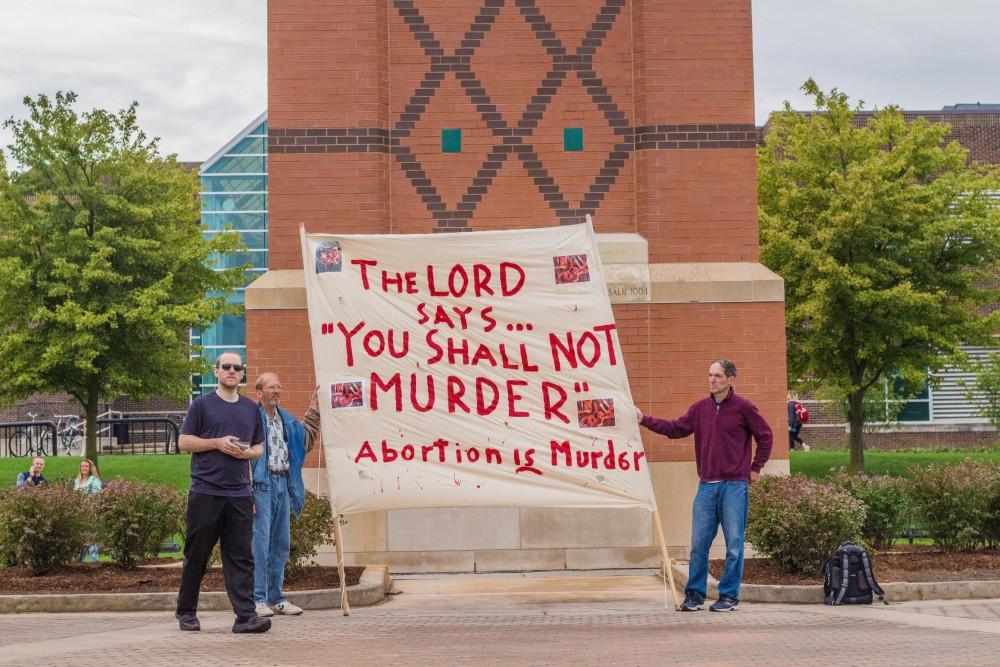Texas abortion bill stirs unrest on campus

GVL / Dylan McIntyre An anti-abortion rally that took place mid afternoon on August 28th, 2017.
Sep 7, 2021
This past Thursday Sept. 2, a pro-life group organized a protest in GVSU’s Allendale Campus’ designated free speech space in front of the Cook Carillon Tower. There was an older man standing holding a huge cross with posters on either side of him, one with images of bloody fetuses that said “Abortion is Murder,” and another with an assortment of bible verses on it.
There were some students laughing at him, holding their phones high in the air to take selfies with him and the posters in the background. Other students closer to him were yelling, chanting “go home.” He came to make a scene, and the students ensured that there was one.
The Supreme Court ruled in Roe v Wade, in 1973, that women have the right to an abortion before the point in pregnancy when the fetus can survive outside of the womb. However, this Wednesday, the Supreme Court ruled in favor of a Texas bill that prohibits abortions after a heartbeat can be detected in the embryo. This bill specifically allows individual citizens, not state officials, to enforce the law; private individuals can sue people they suspect of having abortions or facilitating abortions, for up to $10,000. The bill also allows for very few exceptions; even if the person seeking the abortion experienced sexual assault, they are not allowed to terminate the pregnancy.
With this law, the state of Texas is violating the personal autonomy of anyone who wishes they could terminate a pregnancy, and empowering private citizens to violate that personal autonomy as well. While technically the Supreme Court has not established that it is a fundamental right, according to Cornell Law School’s open access Legal Information Institute, it was stated in Planned Parenthood v. Casey that a state cannot fully and absolutely invade an individual’s right to personal autonomy, even to save a life.
However, the decision reached by the Supreme Court in Washington v. Glucksberg seemed to contradict that, where it was established that due process does not wholly protect an individual’s bodily autonomy. The Legal Information Institute’s database entry on personal autonomy observes that the Supreme Court seems unresolved on the matter, and that reflects what is so emotionally draining about the abortion debate.
Democracy is an ongoing conversation, as opposed to a series of uncontestable decrees, but it feels as if the debate over abortion should have been settled in 1973 with Roe v Wade. The validity of the decision is constantly being called into question, and if the Supreme Court’s ruling on the new Texas law is any indication, it might be wholly reversed.
The process can be exhausting for anyone who feels like the United States is making progress, to constantly return to the same issues. The people whose freedoms are stripped away by these bills and decisions are forced to argue for their own safety and liberty over and over again. With the right to bodily autonomy being thoroughly undermined by the Supreme Court and Texas, it’s possible that other historic decisions are on the chopping block, too.





















